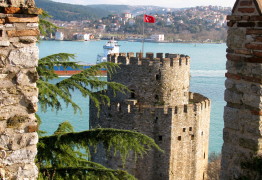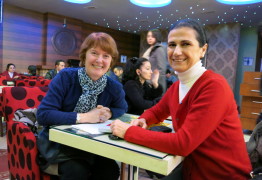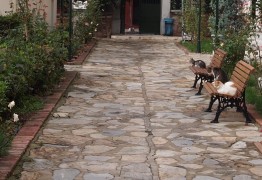In June 1934, in the midst of strenuous efforts to create a new history and a new language, Mustafa Kemal [Atatürk] made surnames compulsory for all Turkish citizens. The usefulness of the measure was hard to dispute. A few families had acquired surnames; some individuals had nickames. But the majority of Muslim Turks were known only by their forenames. To help identify them, documents specified their parents’ names. In military schools cadets were known by their forenames and places of birth. This traditional system could not serve the needs of a modern society, and the obligation to adopt surnames was readily accepted. Ataturk, The Biography of the Founder of Modern Turkey, Andrew Mango.
What an unusual opportunity, each and every Turkish family given a chance to label themselves and their descendants. I imagine few people resisted Atatürk’s edict, although there were probably some heated arguments over the unprecedented choice it posed.
What name would you choose for your family if you were asked? Would you pick one that expressed your interests or your family interests? Would you commemorate a particular time and place in the life of your family? Would you pick a characteristic you admire?
As it turned out, some Turks chose the time-tested “son of” route, which involves attaching “oğlu” to the end of their father’s first name. Many named themselves after natural things: Alp: Alpine; Gül: Rose; Nergis: Daffodil; Deniz: Sea; Yaprak: Leaf. Others focused on ideals or characteristics: Dilek: Wish; Pinar: Source; Tuğba: Tree of Life; Özlem: Desire; Mahir: Skillfulness; Gizem: Mystery. There are a great many of these, reflecting prized characteristics: Keskin: keen or sharp; Kutlutan: lucky; Serin: fresh and cool; Yalçin: rugged; Öz: soul or authentic (this one was either quite freqıemtşu chosen or the Öz descendants were highly prolific, one runs into Özes all over the place). Other Turks went with fierce animals such as Arslan, lion, or more explicit expressions of power such as Sert: Hard; Çetin: Tough or Şimşek: Lightning. We have a student in our English program named Yağmur Şimşek: Rain Lightning.
I wonder about the person who chose Enmutlu: Most Happy, my boss’ last name. What was he or she like? Perenially cheerful and optimistic? Or was the name chosen out of some temporary elation? Since these decisions were made following years of conflict, did some people attempt to erase the past? Were all those who began calling themselves Kahraman, heroes? What about the man who chose Demirel, Iron Hand?
As I learn people’s names here in Turkey, it is fun to associate them with real, meaningful words – a great way to pick up vocabulary. Two-word names such as the aforementioned Most Happy and Rain Lightning, as well as Yildiz, Guiding Star, remind me of Native American names—odd, but endearing.
All of this makes me stop and consider the name of the country I am living in. What does Turkey bring to mind? Mary Lee Settle, winner of the 1978 American Book Award, wrote that Turkey has the worst and most ill–drawn public image of almost any country I know. I agree. Before I visited Turkey, the word conjured up little other than images of danger, and repression. It would be unthinkable to change this country’s name, yet a product with such undesirable connotations would be immediately renamed and rebranded, image consultants working feverishly to wipe away old impressions. But that’s another blog.
Today I am wondering what name I would choose if I was given the opportunity. It would be difficult to select an adjective without appearing self- righteous—or ridiculous. A word from nature might better stand the test of time. The word mountaintop comes to mind, but in Turkish it is dağ başı, (pronounced dah basha), which doesn’t sound great. Koyak, valley, perhaps, or Orman, forest or better yet, the Latin-sounding Manzara, view. Thinking of my family, however, I would probably find it impossible to resist wrapping my hopes and dreams around a moniker. Strong: guçlu. Resilient: direncli. Compassionate: şefkatli. Or just possibly, thinking of these unpredictable times, becerikli: resourceful.




Very interesting, Sue. What a unique opportunity! Thanks for the information.